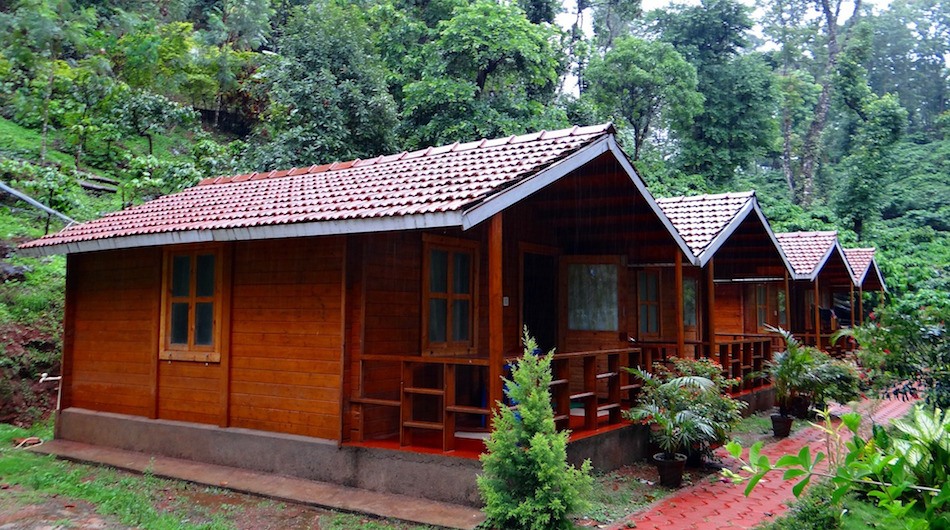
Photo credit: Pexels
Data from venture capital research firm Tracxn shows 277 shutdowns this year, but there may be many more in the deadpool. It’s hard to differentiate between lack of activity and companies being shut down.
Not surprisingly, ecommerce accounted for the largest number of shutdowns, followed by foodtech. Despite the fast growth in smartphone usage, monetization has proved hard in the consumer internet space. While the likes of Amazon and Flipkart can absorb losses with a long-term view, smaller players are forced to shut shop when the funding tap is closed.
Here are 12 of the biggest startup failures this year and lessons learned:
Stayzilla, RoomsTonite – budget accommodation
The most dramatic shutdown of the year was that of seven-year-old Stayzilla, which had raised US$33.5 million in total funding and billed itself as India’s largest homestay network. Tech in Asia was the first to notice something amiss when we searched for accommodation on the site and found that beyond a certain date all listed properties were “sold out.”
Co-founder and CEO Yogendra Vasupal put out a statement after the Tech in Asia report appeared, announcing a halt to Stayzilla operations “in its current form, and looking to reboot it with a different business model.” The story got grimmer after that – Vasupal landed behind bars when an ad firm went to court over non-payment of dues.

A homestay in a coffee estate in Coorg, India. Photo credit: Pixabay
The budget accommodation space has looked attractive because of the size of the Indian market and tourism potential of the country. But monetization has been hard. Stayzilla ran losses of US$14 million against a revenue of US$2 million in the financial year ending March 2016. The cash burn became unsustainable when investors turned more cautious this year and funding dried up.
Just days after Stayzilla, another player in this space – last minute hotel booking app RoomsTonite – shut down. It had raised US$1.5 million in angel funding.
See: Why Stayzilla backed by Matrix and Nexus shut down
Ironically, the best-funded budget accommodation player – SoftBank-backed Oyo Rooms – had an even bigger cash burn than Stayzilla, according to a Mint compilation of filings made with India’s registrar of companies. But it got a whopping US$250 million series D round this year as its backers see a chance for market leadership.
Taskbob – home services
Home services portals had investors queueing up in the heyday of 2015. One of these was Taskbob which raised a US$4 million series A round in early 2016. But it soon ran into two problems.
Quality assurance has been hard to ensure as on-demand home services expand and scale up. Taskbob co-founder and CEO Aseem Khare had acknowledged this at the time of announcing the series A funding. “Fulfillment, not discovery, is the real problem in India’s local services space,” he said.
See: Will $23m in funding help Housejoy resolve its home services mess?
But Taskbob was unable to balance the equation between quality assurance, scaling up, and razor-thin margins. So, despite having been selected in the Google Launchpad program for its potential, it had to shut down early this year.

Photo credit: gratisography.
Yumist, Eatonomist – food delivery
Food delivery has faced problems similar to that of home services: unsustainable costs, negative margins, and unreliable quality. Those coupled with too many me-too players in the space saw a number of well-funded startups bite the dust in 2016 – TinyOwl, ZuperMeal, iTiffin, BiteClub, Zeppery, and so on.
The trend has continued this year and the biggest to fall is Yumist, founded by former Zomato executive Alok Jain and restaurateur Abhimanyu Maheshwari in 2014. They raised US$3.4 million to deliver “homely food” made in Yumist kitchens at affordable prices. But the goal of scaling profitably proved elusive.
The founders said in a blog post after the shutdown that they might have taken time to find the sweet spot, but Yumist was on the path toward profitability with sustainable margins and customer acquisition costs. “Yumist would have become a profitable company by June 2018. Yet, we are shutting shop today. We failed to raise the kind of capital that this business required while staying true to the customer problem,” they wrote.
They did acknowledge some mistakes. “From launching in a second city prematurely, or committing to a high-growth high-burn model just because prospective investors wanted to see that back in 2015, or taking a tad bit too long to find the right business model, we made our mistakes. We learnt from these mistakes and recovered fast, but maybe not too fast.”
Another significant shutdown in this space was three-year-old Eatonomist, which had promised to deliver healthy gourmet meals to office desks. Its co-founder Anisha Dhar joined Uber’s newly launched food delivery service UberEats this year, her LinkedIn profile shows.
See: 11 failed startups and lessons learned

Photo credit: akhenatonimages / 123RF
Overcart, Surpluss – refurbished goods marketplaces
Overcart is a five-year-old marketplace for over-stock, unboxed, refurbished, and pre-owned goods. It raised US$3 million in series A funding led by JSW Ventures and Omidyar Network last year. When we last checked, its website had become inactive with a notice saying it is only accepting bulk orders. Its Facebook and Twitter accounts too have been inactive since September 2013. Medianama, which was the first to notice the shutdown, did not get any response to email and messages sent to co-founder and managing director Alexander Souter.
A number of players had caught investor attention in this space, because of a thriving grey market in India, especially for smartphones. But execution on the ground has proved challenging and costly. Another player that shut down earlier in the year was refurbished electronics goods marketplace Surpluss. “We had a B2C inventory model and the cost of running it was very high,” Surpluss managing director HS Bhatia told Moneycontrol, adding that it planned to switch to selling to companies.
Bangalore-based Zefo has tried to overcome trust issues in used goods with standardized pricing, quality checks, and refurbishment. It raised US$9 million in a series B round this year, following a US$6 million series A round last year.
“This is an operationally complex business – not as simple as a listing site where you put up products and people would start transacting. In order to maintain the quality, which ultimately is our strength and differentiator, there are a lot of steps that we take. Otherwise, this business won’t work. The big challenge is to grow our supply, demand, and operations in sync,” Zefo’s CEO and co-founder Rohit Ramasubramanian told Tech in Asia in October, while announcing the funding.
See: The estore that gives big discounts and still hopes to make money just got $9m
Another well-funded player is Yaantra, which focuses on refurbished mobile phones. It raised US$3 million in funding this year, following a US$6 million round last year.

Kaaryah founder Nidhi Agarwal didn’t have it easy. Photo credit: Kaaryah
Kaaryah, Zafraa – fashion ecommerce
Kaaryah caught attention a couple of years ago when it got backing from Indian biz tycoon Ratan Tata. It went on to raise pre-series A funding from Infosys veteran Mohandas Pai and the Saha Fund in December 2015. But with investors tightening their fists from last year, it struggled to raise a follow-up round over the past 18 months.
Nidhi Agarwal had quit her position as strategic director for American conglomerate Honeywell to start Kaaryah four years ago. It was based on her personal experience that Western wear often did not have the right fit for Indian women. She created a private label for Indian women’s office wear, sourcing the clothes from a network of tailors with designs provided by Kaaryah. But it ran out of runway.
See: 113 rejections, sexism, armed extortionists. That wasn’t all she braved as an entrepreneur
Another player to shut down in this space was cross-border ecommerce site Zafraa, which had an portal for imported women’s wear. It had raised US$166,500.
Finomena, Splitkart – fintech
The adoption of digital identity Aadhaar and digital payments has sparked a slew of loan sites of all kinds over the last couple of years. One of these was Finomena which aimed to give small loans to students and other millennials who lacked the required credit history for traditional loans. It analyzed data from social networks, buying patterns on mobile top-ups, and such for credit-worthiness.
It was founded by Riddhi Mittal, a Stanford graduate who had worked at Microsoft and Facebook, and Abhishek Garg, an IIT graduate who had worked for the Boston Consulting Group. It had US$1.7 million in funding from Matrix Partners and 10 angel investors, including InMobi co-founder Abhay Singhal. They featured in the Forbes 30 under 30 list this year.
But all that did not cut ice in what is a crowded market now with a number of well-funded players. A visit to the Finomena site returns an error message.
See: Millions still in the bank, GoZoomo shuts shop, returns VC money
Among other shutdowns in the fintech space was Splitkart, a mobile app that enabled groups to split bills. It had drawn attention a couple of years ago when it received seed funding from prominent angel investors, including Snapdeal’s former product head Anand Chandrasekharan, who now works on global strategies and partnerships for Facebook. “We are upgrading a few things and our people are working on it to bring it back. However, I am not sure when we will be back,” Splitkart co-founder Sharique Khan told VC Circle.

Photo credit: Santabanta
Dial A Celeb – celebrity engagement
Dial A Celeb was an app promising to connect fans with celebrities for short video chats. It also offered a service to book celebrities for events, and sell celebrity-autographed products. This was short-lived as Dial A Celeb became inactive within a year – the last post on its Facebook page was on May 1.
See: How likely is your startup to fail within a year? Here’s the bitter pill
There have been quite a few celebrity engagement apps like HookAStar and 500sh. But a more recent trend is for celebrities to have their own stylized apps, as shown by Kim Kardashian and Taylor Swift. This trend is catching on in Bollywood too. Sonam Kapoor, Sunny Leone, and Alia Bhatt are among those who took the lead with their own mobile apps. Celebrity chef Sanjeev Kapoor also has one. Escapex, a New York startup that produces white label apps for celebs, has started to make inroads in India. As such, the attraction of aggregator apps like Dial A Celeb has dimmed.
This post 12 failed startups in India in 2017 and what you can learn from them appeared first on Tech in Asia.
from Tech in Asia https://www.techinasia.com/insights-from-12-failed-startups-in-india-2017
via IFTTT

No comments:
Post a Comment